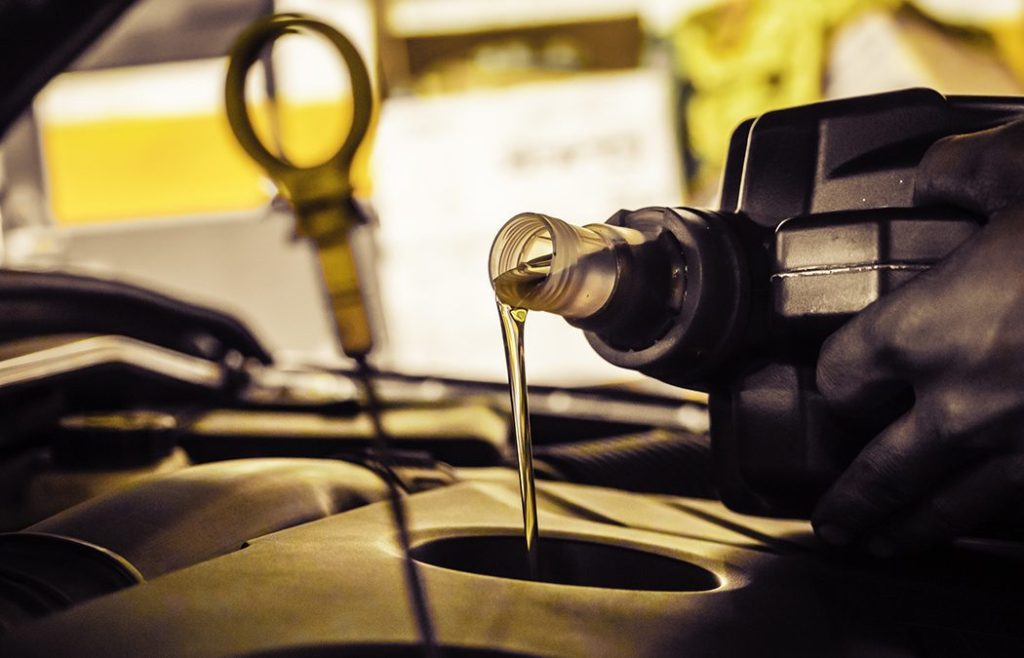IS A DIFFERENT FILTER REQUIRED WHEN THE ENGINE USES SYNTHETIC OIL?

There are advantages to using synthetic oil. It last longer, can withstand higher temperatures, and reduces engine wear. Its resistance to break down can keep your engine running smoother for longer, and it’s also better for the environment than regular motor oil when it comes to the time it takes to dispose of it. Synthetic oil is more expensive at the start but may be a worthwhile investment in the long run.
Do I Need A Synthetic Oil Filter?
If you are using synthetic oil, do you need a synthetic oil filter? No. The use of the word “synthetic” in the case of synthetic oil filters refers to the material it’s made from. Synthetic media is used in the manufacturing process, rather than traditional pleated paper. While you don’t have to use it with synthetic oil, there are some advantages. Typically, synthetic oil filters do a better job of trapping small contaminates for a longer period of time (and more miles on your vehicle), meaning less frequent changes. Combined with synthetic oil, it means fewer trips to the shop. Look for an oil filter that provides 10,000 mile protection with at least a 98% efficiency, such as the Premium Guard Extended Life oil filter.
Can I Use Any Car Oil Filter With Synthetic Oil?
You will want to check with your vehicle’s manufacturer to make sure, but typically any automotive filters that are made for modern vehicles can be used with any type of oil. Every major motor oil manufacturer says you do not need a special or different oil filter when using synthetic oil. The better quality an oil filter is, the better job it will do in filtering contaminants.
It’s best to check what the manufacturer recommends because you don’t want to do anything that might void your warranty is a problem arises.
Why You May Want To Pick A Higher Quality Oil Filter
An oil filter does what you would expect it to do; it filters the oil to prevent contaminants and engine by-products from being circulated into the engine. The filter has to be porous enough to let good oil pass through, but trap any particulate matter that could do damage.
The more contaminants that pass into your engine, the more it will reduce the engine’s life. The majority of engine wear comes from particles between 5 and 20 microns. The better job a filter does of keeping those particles out of your engine, the better performance you will get. The lower the micron efficiency number, the higher the price. The best high efficiency filters are efficient to about 10 microns and also filter out most smaller particles.
The Society of Automotive Engineers has done extensive car oil filter testing. The group reports that switching from a 40-micron oil filter to a 30-micron oil filter can reduce engine wear by as much as 50%. Switching from 40-micron filtration to 15 micron filtration for your automotive filters can reduce engine wear by as much as 70 percent.
While you do not need a synthetic oil filter, or a special oil filter with synthetic oil, the quality of your oil filter can make a big difference. However, like most things in life, you get what you pay for.

